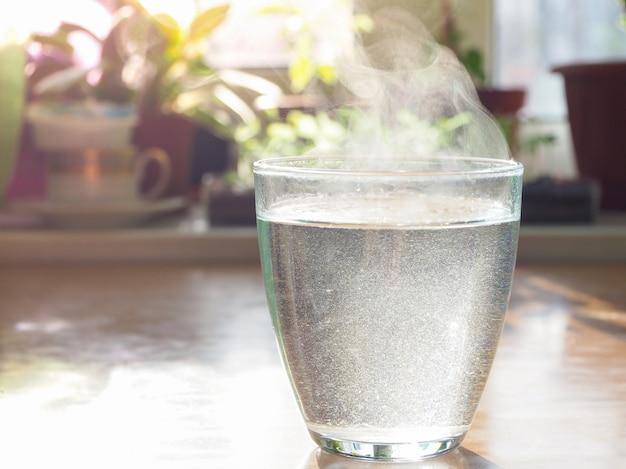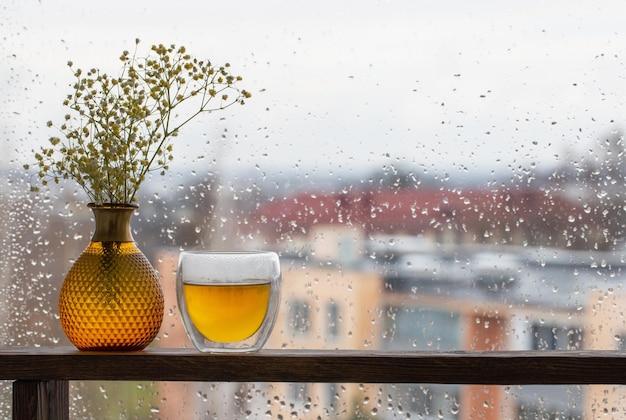Glass is a material that we encounter in our daily lives, from windows to drinkware. But have you ever wondered if glass has any effects on temperature? Does glass have the ability to retain or keep things warm? In this blog post, we will explore the properties of glass and delve into the question of whether it can indeed act as an insulator.
We’ll address common inquiries such as why glass is considered a poor conductor of heat and if it retains heat better than other materials like plastic. Additionally, we’ll examine the cooling rates of glass and plastic and compare their abilities to keep drinks cold. By the end, we hope to unveil the secrets behind glass and its role in maintaining temperature. So, let’s dive in and uncover the truth about whether glass truly keeps things warm!
Does Glass Really Keep Things Warm
Imagine this: You’re sitting in your cozy living room, sipping on a hot cup of cocoa, and enjoying the beautiful view of the snow-covered landscape outside. The room is bathed in sunlight, thanks to the large glass windows that span the length of the wall. But have you ever wondered, does glass actually keep things warm? In this section, we’ll dive into the science behind glass and its ability to trap heat.
The Greenhouse Effect: Glass at its Finest
When it comes to trapping heat, glass is like the superhero of materials. It has a unique property that allows sunlight (which consists of visible and UV light) to pass through, but once inside, it transforms into a different form of energy called infrared radiation. This infrared radiation is not able to pass back out through the glass as easily, creating a sort of barrier that prevents heat from escaping efficiently. It’s like a one-way street for heat!
Insulating Your Home with Glass
Have you ever walked barefoot on a tiled floor in the winter? Brrr! That chilly feeling is because the tiles are excellent conductors of heat, sucking it right out of your cozy feet. But when it comes to glass windows, they can actually serve as a buffer zone between the indoors and the great outdoors. The air trapped between the glass layers acts as an insulator, reducing the amount of heat that is lost through the windowpane. So, in a way, glass keeps things warm by preventing heat from escaping your cozy abode.
Double or Triple Glazing: A Glass Marvel
If you think single-pane glass windows are impressive, then double or triple glazed windows will blow your mind! These modern marvels consist of multiple layers of glass with an insulating gas, such as argon or krypton, sealed between them. Not only does this design enhance the insulation capabilities of the glass, but it also reduces noise transmission. Say goodbye to those pesky noisy neighbors!
Understanding U-Values: The Science of Efficiency
Now, let’s talk about U-values. No, we’re not referring to some secret agent society; U-values are a scientific measurement of heat transfer. The lower the U-value, the more efficient the glass is at preventing heat loss. So, when you’re shopping for new windows, keep an eye out for those with low U-values if you want to maximize warmth and minimize energy bills. It’s a win-win situation!
But What About Energy-efficient Glass
Ah, the wonders of technology! Energy-efficient glass, also known as low-emissivity or Low-E glass, takes things to a whole new level. This clever glass has a microscopically thin coating that reflects infrared radiation while still allowing visible light to pass through. The result? You get to enjoy the warmth of the sun without the unwanted heat gain, making it ideal for warmer climates. It’s like having a thermostat for your windows!
The Verdict: Glass, the Toasty Ally
So, does glass keep things warm? Absolutely! With its magical ability to trap heat and the advancements in insulation technology, glass is truly a toasty ally in the battle against chilly winters. Whether you opt for a single-pane, double-glazed, or energy-efficient glass, you can cozy up in your home knowing that your windows are working hard to keep you warm and snug.
Does Glass Keep Things Warm? A Comprehensive FAQ
Glass is a fascinating material that has been used in various applications, from windows to drinkware. But when it comes to temperature control, many questions arise. In this FAQ-style blog post, we’ll address some common inquiries about glass’s ability to keep things warm. So grab your favorite glass of hot cocoa and let’s dive in!
Why Glass is a Charming Insulator
Q: Why is glass the best insulator?
A: Glass may not look like much, but it’s a champ when it comes to insulation. Its unique molecular structure minimizes heat transfer through conduction, making it an excellent insulator. So, you can snuggle up with your glass of hot tea without burning your hands.
Q: Does glass cool quickly?
A: Glass cools at its own pace, but it isn’t exactly the speediest chiller. Unlike some high-maintenance materials, glass knows how to take things slow and steady. So, sip your iced coffee from a glass and savor its refreshing coolness.
Battle of the Cold: Glass vs. Plastic
Q: Do drinks stay colder in glass or plastic?
A: No contest here—glass wins the icy race. It’s a pro at preserving cold temperatures, keeping your drinks refreshingly chilled for longer. Meanwhile, poor plastic can’t quite measure up and often lets the cold slip away quickly.
Q: Which cools faster, glass or plastic?
A: Ah, the age-old question. When put head-to-head in the cooling Olympics, glass triumphs once again. Thanks to its superior heat retention, it cools things down faster than plastic. It’s like having a superpower against lukewarm beverages!
The Heat-Conquering Abilities of Glass
Q: Why is glass a bad conductor of heat?
A: Glass isn’t the most social material when it comes to heat—it likes to keep to itself. Its atomic structure lacks the free-flowing electrons that metal has, making it a poor conductor of heat. So, if you want to keep heat at bay, glass is your friend.
Q: Does glass retain heat?
A: Absolutely! Glass has an incredible knack for holding onto heat. Pouring your hot chocolate into a glass mug means you’ll have a warm and cozy treat for longer. It’s like cuddling up with a favorite blanket, but in liquid form.
Q: Does glass retain heat better than plastic?
A: Oh, definitely. While plastic may try its best, it can’t match glass’s heat-retaining magic. Glass acts as a reliable heat trap, keeping your drinks warmer for a more extended period. It’s like having a cozy cabin for your beverages.
Glass and its Heat-Conducting Nemesis
Q: Why is copper a better conductor of heat than glass?
A: Copper is like the flashy extrovert at the heat-conducting party. It has loads of free-moving electrons, allowing heat to zip through it quickly. Glass, on the other hand, prefers its own quiet corner, with fewer heat-conducting electrons to keep things chill.
Q: Is glass a bad conductor?
A: Yes, glass is the shy introvert of conductivity. It’s not keen on passing along heat energy, which is why it’s considered a poor conductor. So, feel free to pick up that sizzling glass baking dish without fear of getting burnt. Just…be careful!
Exploring the Cooldown Showdown
Q: What cools faster, aluminum or glass?
A: Aluminum is the speedy Gonzales of cooling—it can give you frostbite in no time. When it comes to chilling out, it beats glass in a race. So, if you want a rapid cooldown, opt for aluminum. But be warned, its speed can be quite chilling.
Q: What gets colder, a can or glass?
A: Ah, a battle between the titans of cold! In this matchup, the can takes the lead. Its metal composition gives it an advantage, allowing it to cool your beverage faster than glass. So, when it’s scorching outside, reach for a frosty can of your favorite drink.
Uncovering the Best Insulation
Q: What is the best insulator?
A: When it comes to insulation stardom, there are a few top contenders. Materials like fiberglass, wool, and polystyrene foam excel at keeping things toasty or cool. But each has its own strengths and weaknesses. However, glass deserves recognition as a noteworthy insulator, especially when it comes to heat retention.
Q: Does glass stay hot longer than metal?
A: Absolutely! Glass’s heat-hoarding skills are second to none. Compared to metal, which willingly surrenders its warmth, glass extends the life of your piping hot beverage. So, if you’re in the mood for a slow, luxurious sip, reach for a glass mug.
The Secrets of Windows and Plastic Foam Cups
Q: Why is window glass a better conductor than a plastic foam cup?
A: While window glass may be known for its transparency and view-enhancing abilities, it does have a secret—it conducts heat better than a plastic foam cup. Glass’s structure allows more heat energy to pass through, ensuring your windows don’t become frosty frames.
Q: What cools faster, plastic or metal?
A: If we’re talking about cooling speed demons, metal takes home the gold medal. Plastic can try its best, but metal’s superior heat conductivity wins the race. So, when you’re in a hurry to chill that drink, metal gets the job done in a flash.
The Rise of Polystyrene
Q: Why is polystyrene better than glass?
A: Well, comparing glass and polystyrene is like comparing apples to oranges. Each has its own unique qualities. Polystyrene, also known as Styrofoam, excels as an insulator due to its low thermal conductivity. It keeps hot things hot and cold things cold, all while looking considerably less breakable than glass.
Glass: The Cool Custodian
Q: Does glass keep things cold?
A: Absolutely! Glass has an impressive talent for maintaining cold temperatures. Pour your favorite cold beverage into a glass, and it will stay refreshingly chilled for longer. Just like having your drink guarded by an icy sentinel.
Unplugging Glass’s Electrical Skills
Q: Is glass a poor conductor of electricity?
A: You bet! Glass may be transparent and stunning, but it lacks the conductivity to light up a room. It’s like a dim bulb in an electrical circuit. So, when it comes to conducting electricity, glass would rather sit it out and enjoy the show.
Seeking the Long-Lasting Chill
Q: What material stays cold longest?
A: Ah, the quest for prolonged chilliness! Among the contenders on this quest, stainless steel often boasts long-lasting coldness. Its high thermal inertia helps it retain low temperatures for an extended period, giving you plenty of time to enjoy your refreshments.
Unlocking the Heat-Trapping Mechanism
Q: How does glass keep heat in?
A: Glass has a natural talent for capturing and keeping heat within its translucent embrace. Its molecular structure and low thermal conductivity trap the warmth, ensuring your hot beverage stays steaming hot. It’s like giving your drink a cozy hug that lasts.
And that concludes our comprehensive FAQ on whether glass keeps things warm. Hopefully, we’ve shed some light on the curious and captivating world of glass’s temperature management abilities. Now you can appreciate glassware and windows in a whole new way. Stay warm, stay cool, and keep savoring every sip!


